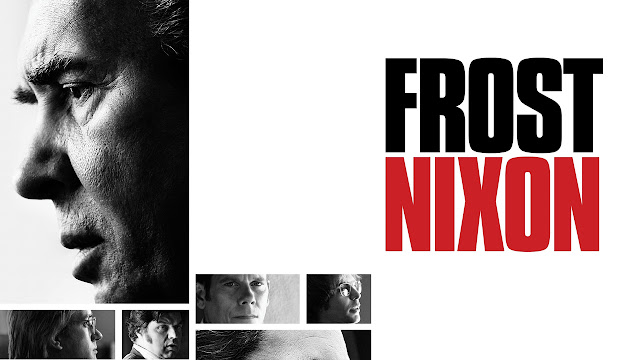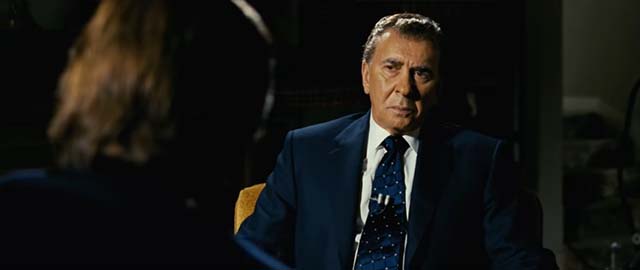Imagine a time when there was no political distrust in the White House. I can’t…not in my lifetime at least. You can say Jimmy Carter was a milquetoast president who was too vanilla to have a serious scandal during his term, and perhaps that is the case, but that would be the sole exception in my lifetime. Obama might fall into that category, too, although I wouldn’t consider him to be a milquetoast leader, just more laid back. I didn’t live during the Kennedy/Johnson/Nixon era of the United States of America, so I don’t have firsthand experience with how the emotions of a damaged nation were dealing with all of that drama, but I have done my fair share of digging into it over the years; light reading to satisfy my curiosity.
My first real reflection on Nixon came just a few months before I was to graduate high school. This was the spring of 1994, and word had just gotten out that Richard Nixon, 37th President of the United States, had just died. There were the usual press releases and footage of the remaining presidents, including then-incumbent president Bill Clinton, assembling for his funeral. There was also an uptick in interest in what Nixon would be most known for from his time in office: scandal. Suddenly, All the President’s Men was showing on TV again, speculation over who was Deep Throat rose, and everyone was talking about the resignation all over again. There was also some talk about the Frost/Nixon interviews that had taken place in the late 1970s. Those interviews, seen as a loss, were being recontextualized after decades of distance from the actual events.
Twelve years later, Peter Morgan released a stage play entitled Frost/Nixon based on these controversial interviews. This play, debuting at the Donmar Warehouse theatre in London, depicts talk-show host David Frost’s attempts to raise funds to finance a series of interviews with the disgraced former president of the United States, culminating in an interview in which Frost manages to get Nixon to admit that not everything he did in office was strictly legal. This admission was something the American people didn’t get from the trials and news sources of the time and was seen as a bit of closure they were denied when Gerald Ford gave Nixon his complete pardon of any federal crimes committed while in office.
Getting Nixon to admit guilt on camera seems like a bit of a fairy tale, especially knowing his personality and an outright refusal to delve into the scandal in the years after his resignation from office. In fact, it is a fairy tale because quotes from that interview that seem to suggest Nixon is admitting to anything are taken out of context or manipulated to say what they don’t actually say. Frost/Nixon in essence is an attempt to turn a loss into a win by elevating what David Frost did well beyond what he actually accomplished. Peter Morgan has in essence created a fictionalized account of the actual events and how David Frost would have liked that set of interviews to have gone.
The play’s popularity is undeniable, and it seemed like it was only a matter of time before a film version would be made. Two years later, Frost/Nixon was in movie theaters, directed by the undeniably talented, but often vanilla, director Ron Howard. It would reunite the original leads from the play, and while it was not a financial hit, it did score points with critics and secure a nomination for Best Picture at the Oscars. But time has not been kind to this picture, and it has mostly gotten forgotten, viewed by amateur Watergate scholars and those like me who seek out Oscar-nominated pictures. It doesn’t deserve to be forgotten, though. It may be historically inaccurate, but that doesn’t make it a bad film, just something you shouldn’t base your history on.
The film opens up with Nixon’s (Frank Langella) famous resignation address in 1974. 400 million people worldwide watched that address and his subsequent exit from the White House the following day. Among those watching is David Frost (Michael Sheen), a British journalist working on a talk show in Australia. Frost sees an opportunity for Nixon to salvage his damaged reputation and make a profit in the bargain. After some negotiating, Nixon’s team secures a promise of $600,000 for a series of interviews, including $200,000 up front upon signing of contracts. Frost struggles to get the financial backing from the major networks for the interviews and has to pony up the initial payment out of pocket. Eventually, he partners with advertisers and local stations to raise the money and prepares for the interviews.
A stipulation for the interviews is that only a small percentage of the time may be used to discuss Watergate, Vietnam, and any other scandalous subjects. During the first of the scheduled tapings, little is accomplished as Nixon drones on and on, controlling the conversation. The whole set-up appears to be a bust until Frost, with the help of James Reston Jr. (Sam Rockwell), one of his investigators, pursues a lead at the Federal Courthouse library in Washington, D.C. that Frost uses to ambush Nixon in the final interview.
It makes for a good story, especially all these years later when the full truth will likely never be known thanks to Ford shutting down the investigation in the name of healing the country. We as a country needed to put it behind us rather than sit through years and years of trials and scandal. However, by cutting things off so cleanly with so many answers still left out there, it left things feeling incomplete. In the absence of answers, all we could hope for was a confession. Frost/Nixon manufactures one, and while we know in our hearts that didn’t really happen, it still feels satisfying seeing it play out on screen.
Not enough can be said about the film’s two leads. Michael Sheen has never been amongst my favorites as an actor, but his smarmy persona translates well to this kind of role. He’s like a game show host with that big, false smile brimming on his lips seemingly at all times. Yet underneath that façade is a deep uncertainty that he can’t quite disguise. Nixon sees through that on their first meeting when he rightfully accesses that Frost is paying the $200,000 out of his own money based solely on his body language while writing the check.
As good as Sheen is here, Frank Langella is better. It matters not that Langella looks nothing like Nixon; the man supersedes that, making this role his own. He wisely chose not to try and use prosthetics to alter his appearance but, instead, relies heavily on his performance to sell the concept. He is affecting a voice, but it is his physicality that truly sells the part. This is a Richard Nixon that still feels that he was justified in his actions, is shamed by having to resign, and is desperately clinging on to the things he did right to justify the things he did that were wrong. It’s a conflicted character, just like the real person was. We see all of that, but we also see a vulnerability that is often absent when viewing those who held the office of the President. It humanizes him in a way that no other film I have seen on Nixon has. The best scene between these two, a moment in time that never really happened, is when Nixon calls Frost up one night and they have a candid conversation that ultimately spurs Frost to take things in a different direction.
While this is a two-hour-long film about a series of interviews, it is far from boring. Instead, it is a fascinating look at a flawed man who is still, years later, trying to convince himself and the rest of the world that what he did wasn’t wrong. In our current political climate, there are definitely parallels that can be made. That shouldn’t be a detriment to the enjoyability of audiences regardless of your persuasion, though. These interviews were painted as a way to salvage Nixon’s tattered reputation, and to a degree, they did. The film paints out much of that and focuses heavily on getting a confession that never really happened, though, which is the weakest aspect of the film. Still, it does give that resolution that we in reality never got. For that alone, the film can be considered a worthy addition to the Oscars list. That, coupled with a real tour de force performance by Langella.
Academy Award Nominations:
Best Picture: Brian Grazer, Ron Howard, and Eric Fellner
Best Director: Ron Howard
Best Actor: Frank Langella
Best Adapted Screenplay: Peter Morgan
Best Film Editing: Mike Hill and Daniel P. Hanley
____________________________________________________
Release Date: December 5, 2008
Running Time: 122 Minutes
Rated R
Starring: Frank Langella, Michael Sheen, Kevin Bacon, Rebecca Hall, Toby Jones, Matthew Macfadyen, Oliver Platt, and Sam Rockwell
Directed By: Ron Howard









Comments
Post a Comment